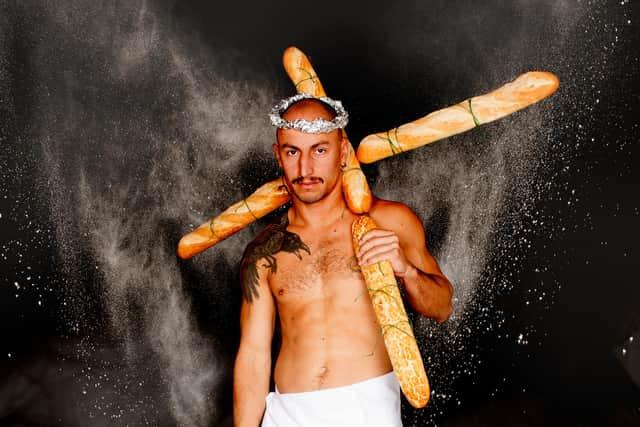Theatre review: Manipulate Festival, various venues, Edinburgh


The international arts scene faces many challenges in this era of pandemic and climate change; not least, the need to redefine the very idea of international exchange, for low carbon times.
If this year’s Manipulate Festival is any guide, though, one problem it does not face is a lack of inspiration and talent. There’s a richness to the work on offer that is both humbling and thrilling, and it was evident this past weekend both in the programme of live performance at The Studio, and in Manipulate’s annual series of animated films (this year available online) focusing on the work of women.
Advertisement
Hide AdAt The Studio, in a show called (le) Pain (****), the circus artist and theatre maker JD Brousse explores the remarkable story of his family’s history as bakers to a small Pyrenean village in south-west France. Jean-Daniel does not want to follow in the footsteps of the last three generations of his family – all called Bertrand Brousse – in dedicating his life to bread and cakes; indeed he discovers that he is gluten intolerant, and cannot eat traditionally-made bread anyway.
But while he rejects this predestined future, JD clearly continues to value the culture of his region and all he learned as a child in the boulangerie. He celebrates both that culture, and his own journey, in a thrilling collage of monologue, movement, music and filmed sequences, beautifully directed by Ursula Martinez, that seems to capture a moment of profound change in our civilisation.
Among other narratives, he honours his father’s journey towards acceptance that the bakery must be sold; and although his programme note says “JD is not going to bake bread”, in fact he bakes some right in front of us during the show, so that we can all break bread together, at the end.
The live programme also included an evening of six short movement pieces, curated by superb London-based dancer-choreographers Daniel Hay-Gordon and Eleanor Perry, most of which celebrate remarkable celebrity figures – Sid Vicious, Grace Jones, Rasputin, and the little-known double-act of John Cage and Elaine Page – with huge style and invention, and a great sense of fun.
And the animation programme featured both a dazzling 90-minute sequence of eight shorts created by women animators across the world – highlights included work by Nara Normande of Brazil, French-based Kajita Aki Ferrazzini, and Scottish film-maker Josephine Lohoar Self – and a hugely moving 80-minute feature, in Ilze Burkovska-Jacobsen’s autobiographical memoir, My Favourite War (****).
Born in Latvia in the 1970s, when the country was part of the Soviet Union, Burkovska-Jacobsen tells her story through an exquisite mix of animated film – which revisits her country’s history through the eyes of the child she once was – and documentary material offering us glimpses of recent return journeys to her childhood homes.
Advertisement
Hide AdThe film is full of beauty and sorrow. But what it mainly offers is a brilliant insight into how a child’s view of the political world is shaped first by family reminiscences and narratives, and then by the assumptions and propaganda of the media in their country – in this case, Soviet state media.
The story ends with the 1989 revolution that set Latvia free to become a modern European Union country, and also liberated Burkowska-Jacobsen herself. Yet the film’s sense of the past is so strong it is difficult to avoid the feeling that this 30-year interlude of peace and freedom may be brief; and is once again coming under the kind of pressure that can leave human beings almost helpless against the tides of history.
A message from the Editor
Advertisement
Hide AdThank you for reading this article. We're more reliant on your support than ever as the shift in consumer habits brought about by coronavirus impacts our advertisers.
If you haven't already, please consider supporting our trusted, fact-checked journalism by taking out a digital subscription at https://www.scotsman.com/subscriptions